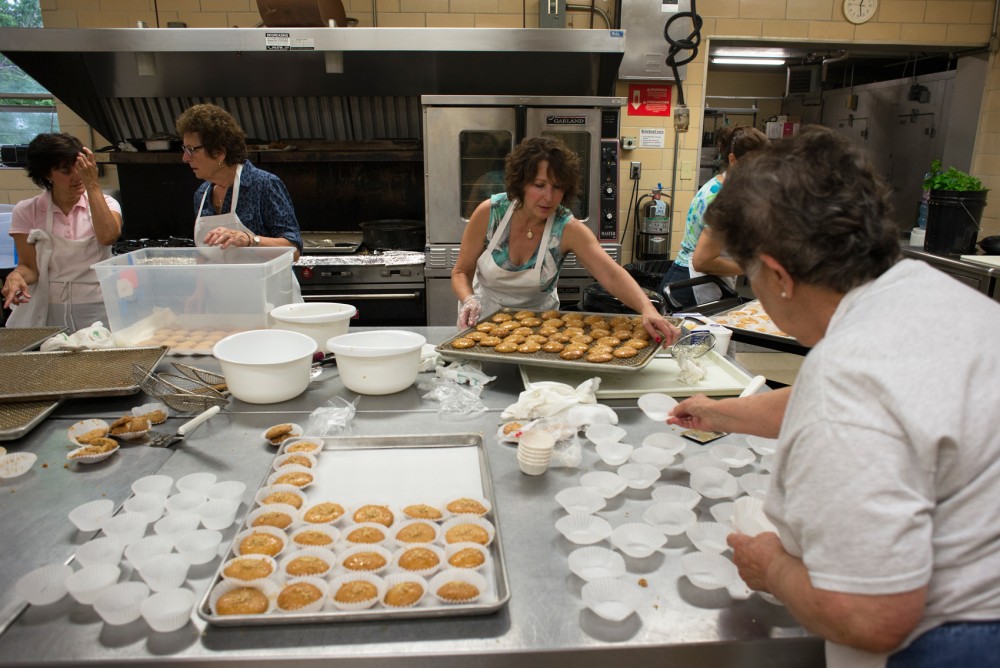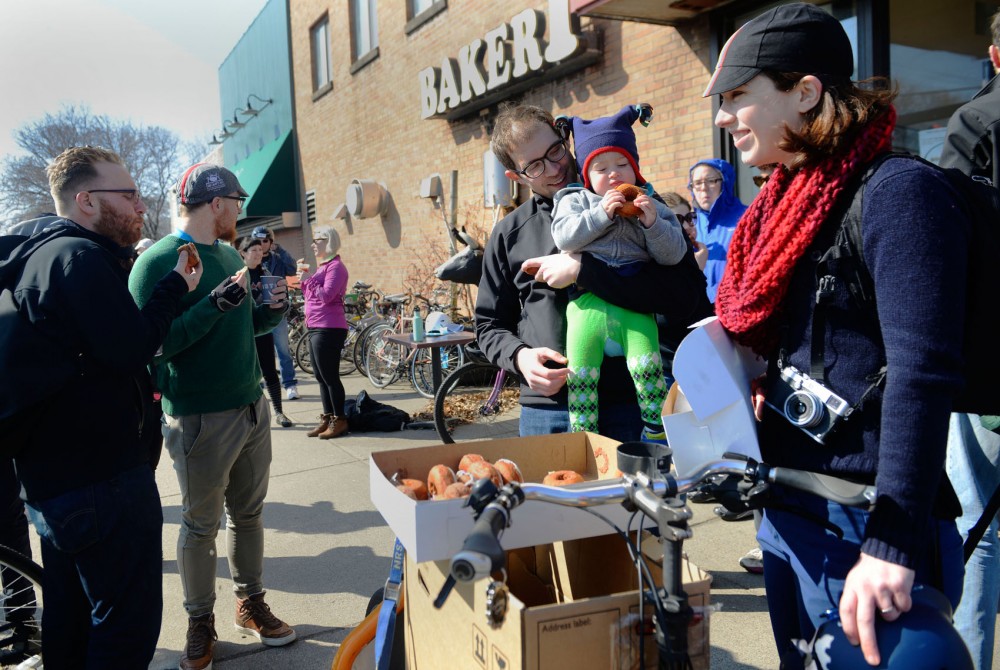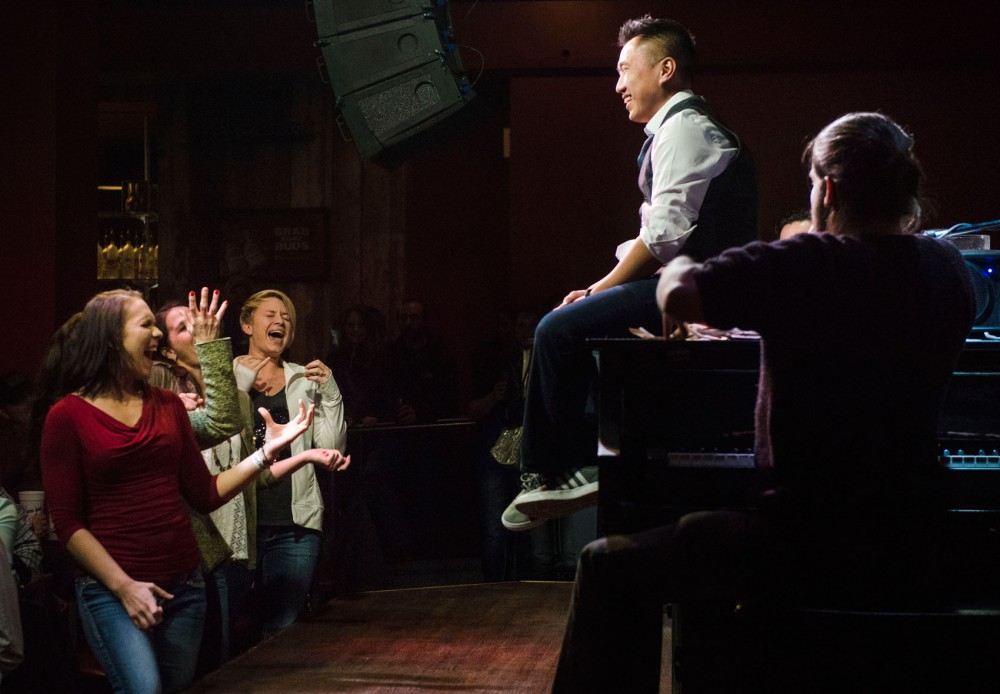Church members in blue T-shirts and hair nets doled out gyros, falafel sandwiches and lemonade to the hungry visitors forming lines next to the big white tent set up in the roped-off parking lot. Across the lot, in a bigger white tent, young women performed traditional dances for their proud families and curious community members.
They were celebrating their heritage and culture for the fifth annual Middle Eastern Festival.
Several years ago, members of the St. George Antiochian Orthodox Church realized they could expand their fundraising efforts from a couple annual dinners to one big outdoor festival that would include the surrounding community of West St. Paul.
Founded by Lebanese immigrants in 1913, St. George provides a place for those of an Arab-Orthodox Christian background to worship and gather with friends and family.
The festival is a chance for the members of this small church to share their sometimes misunderstood culture.
“There is a lot of confusion about the part of our world,” festival organizer Cindy Karos said. “The festival is an opportunity to share our food, our faith, our fellowship and our friendship.”
And share they did. The festival included Middle Eastern delicacies made entirely by church members over the course of the past month, a silent auction and bake sale, camel rides, church tours, a bouncy house and games for kids, dancing and live music.
St. George, like other Arab-Orthodox parishes, integrates Arabic culture with Orthodox beliefs. Christianity is not often associated with the Middle East, but the members of St. George are equally proud of their ethnic background and religion.
In the marketplace, which was set up in the church hallways, rosaries and icons of the Virgin Mary sat next to camel figurines, and T-shirts sporting phrases like, “You bet your Kibbi I’m Lebanese!” (Kibbi is a popular Lebanese meat dish.)
Church members at the festival were exuberant about sharing their faith and culture with the outside community.
Seventeen-year-old Jerry Jubran was delighted to help at the festival, getting to spend some time with his friends who go to other Orthodox churches around the Twin Cities.
“Every Orthodox church here has a festival, and [they are] a great time to get together and see all the friends you don’t necessarily get to see during the year,” he said.
He said although cultural ties create an intimate community at St. George, friends in other branches all come together for each other’s events to support the small-but-growing Orthodox community in the Twin Cities.
The biggest attraction for festival goers of different faiths was the scrumptious Middle Eastern fare. It’s not every day one can find spinach Fatayer (pies) so delicately prepared you almost feel guilty consuming the perfectly folded triangles of golden-brown dough. The spit-roasted lamb is in a class all its own, and Zalabiyee, flat doughnuts the size of iPads, mock any other fried pastry on the planet.
Festival attendees and neighborhood locals Debbie Berny and her family said they loved coming to the festival for the spread.
“It’s great to try something out of the norm for us,” Berny said while waiting for the next round of live performances to begin.
Performers included Americana group the Redemption Alley Band, the traditional Lebanese John Khoury Band, and, of course, the wonderful St. George Middle Eastern Dance Troupe.
The troupe of about 20 young women performed with such zest and vigor to traditional Dabke music that they quickly had the whole crowd clapping along.
Dancer Grace Ablan, a descendant of the church’s founding members, learned the dances from her father, a former dance troupe member.
The family ties and close friendships in the church play a huge role in creating the welcoming atmosphere at St. George. The church’s motto, the Arabic phrase “Ahlan wa sahlan,” exemplifies the festival experience. It translates to, “Welcome, you’re like family, so take it easy.”










